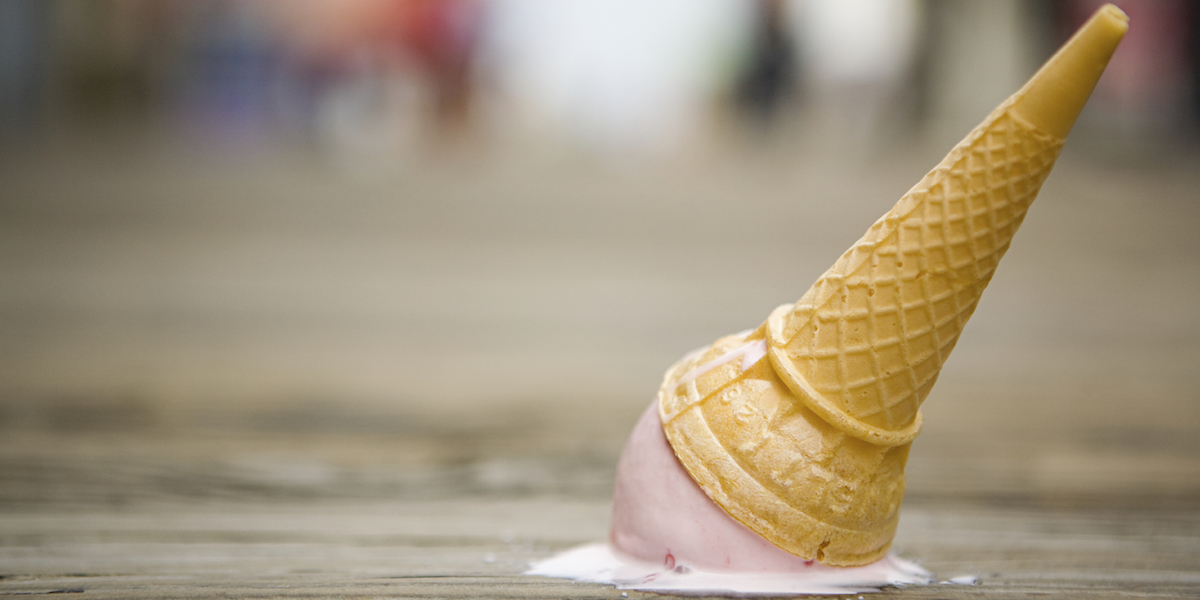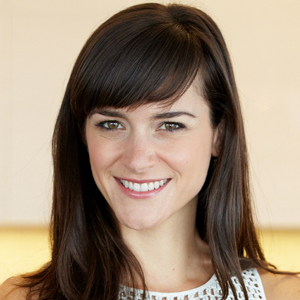I have always had tremendous pride in everything I do. If something has my name on it, I go the extra mile (or 10 miles if necessary) to make it excellent. Even the thought of sending an unedited email or a sloppy text message makes me cringe.
Call it pride, call it self-respect. Whatever it is, I was born with it. My dad always tells me about how he and my mom would spy on me in my crib practicing the alphabet or reciting days of the week. But as soon as I knew they were there I’d stop and wouldn’t show them what I was working on. I wanted to make sure I had it right before anyone could see. I did this in my crib.
Naturally I had a similar pride about my appearance. Sadly, women in this country are taught at a young age that we will be judged (harshly) by how we look. I saw it in my own family as my aunts gossiped about each other’s “Pino thighs,” at school where overweight children were teased and tormented, and on TV where thin, beautiful women got all the attention.
Although I could write a book on how despicable this is, it isn’t realistic to believe our value system is going to change anytime soon. Instead, today I want to focus on one of the consequences of this mindset and what we can do to combat the negative impact it has on our behavior.
When we see people constantly being judged by their appearance, it is natural to start confusing our bodies with our self-worth. Instead of seeing the number on the scale as a data point, we start to see it as a character flaw. This is a big problem.
During the 15 years I was a chronic dieter, I was invariably in either one of two states. If I was in the beginning stages of a new diet I would be hyper-focused on my food and weight. I would diligently document every calorie, every gram of fat and every carb. I would go to the gym and stay on the treadmill for as long as possible (usually at least an hour, often more). And every morning I would jump on the scale and see how good of a person I had been the day before.
Trending: Navy SEAL Secrets for High Performance Under Pressure
During these times I was typically rewarded for my efforts, and would watch with pride as the weight on the scale slid down toward zero. Sure I was hungry and exhausted, but at least I felt good about myself. It was like getting an A on an exam.
Then there were the times when I gave up. When my resolve would slip, and I couldn’t bring myself to eat another pint of non-fat cottage cheese. I’d go out for drinks with friends and someone would order fries or nachos. “I’ll just have one bite,” I’d tell myself before polishing off half of it by myself. Then on my way home I’d stop and get a burrito or a pint of ice cream and take it up to my bedroom to finish it off.
Those days felt like getting an F in life. There was no enthusiastic hopping on the scale the next day. I knew I had “been bad” and didn’t need any more evidence. Instead I’d dress myself in my loosest pair of “fat jeans” and baggy t-shirt and hope no one noticed the shame painted all over me.
Shame is the feeling that comes from comparing your actions with your values and seeing them fall short. Shame researcher Brene Brown calls it, “The fear of being unlovable.” In moments of shame, we don’t even love ourselves.
When we feel ashamed, we hide. We hide our bodies in baggy clothes, we hide from the knowledge of our own behavior. If I were between diets I would go for weeks or even months without stepping on the scale, because I didn’t want to know how much damage had been done. I wasn’t ready to face it or do anything about it, so I would just ignore it. I wasletting the ostrich be my spirit animal.
In order to change behavior you must acknowledge it, not hide from it. You need to study the triggers and rewards guiding your actions and find ways to adjust them. You must view your actions objectively, like a scientist. You need to formulate a hypothesis about what might create a different result next time, then test it. If your new method works, you have your answer. If it doesn’t you need to try again.
If you believe your body is a reflection of your self-worth, then you are incapable of analyzing your behavior objectively and instead blame yourself when things don’t go as you hope. You end up telling yourself things like, “I’m lazy,” “I need more discipline,” or “I’m incapable of losing weight.” You essentially paralyze yourself with shame.
Trending: How to Make Menopause the Best Time of Your Life
Even worse is that shame makes us feel anxious and threatened, leaving us in comfort-seeking mode. More often than not we find this comfort in the form of food, alcohol, or other dangerous habits, causing a downward spiral that can be incredibly difficult to stop.
To break the cycle you must find a way to decouple your eating habits and your self-value. Few people construct their eating habits consciously, so yours most likely reflect what is easiest and most comfortable for you given the other factors in your life (where you live, where you work, how you grew up, etc.). They do not say anything about whether or not you are a good person or worthy of love. You are. And any behavior can be changed if you make it easy or rewarding enough.
Learning to view your eating behaviors objectively, without judgment, can be very difficult and takes practice. The first step is to stop hiding and sheltering yourself from the discomfort of information.
An excellent exercise is to commit to stepping on the scale daily, even if you ate more than you wanted to the day before.
Remember that the scale goes up and down for everyone over time, and try to see it as a data point rather than a verdict on yourself as a person. You can learn a lot from the scale when it stops being your enemy. You can start to connect the dots on what works and what doesn’t.
When I stopped fearing the scale I found that vacations and splurges have less of an impact than I predicted they would and I almost never gained the 5-6 lbs I feared. It’s usually more like 1-3 lbs, something that disappears fairly quickly when I get my habits back on track. Because I know this now, I no longer fear holidays nor go into a downward shame spiral when I get home.
Trending: Microsoft, Google, and Beyond: What Business at the Cutting-Edge of AI Looks Like
You also start to notice patterns from daily weigh ins. For instance, I was surprised to learn that I am inevitably 2 lbs heavier the day after eating sushi. This was shocking the first time I saw it, because I assumed sushi was healthy food. But I’ve seen the pattern so many times now that I know it is actually short-term water retention, likely from soy sauce and rice, and that the weight disappears completely the following day.
In the past, those 2 lbs would have crushed me and likely spurred a manic 2-hour stint at the gym. These days I expect it, and it is comforting to know my body so well.
People often tell me they don’t want to weigh themselves every day because they don’t want to obsess about their weight. But fearing and avoiding your scale doesn’t make you any less of a slave to it.
If you really want to stop obsessing over your weight learn to stand on your scale without shame or pride. Do it daily, until the fear is gone.
A version of this article originally appeared on Darya Rose’s website, Summer Tomato.






























